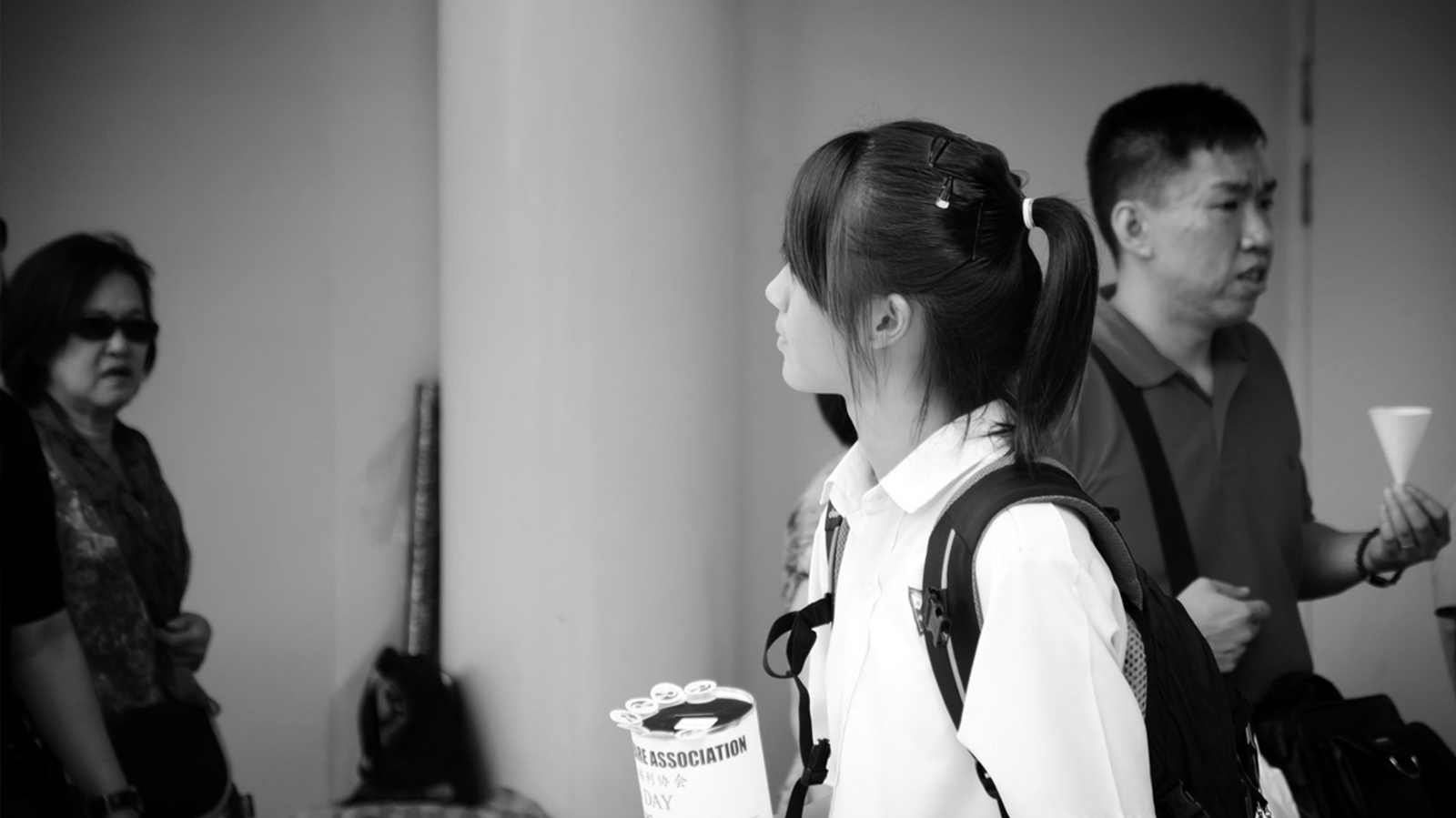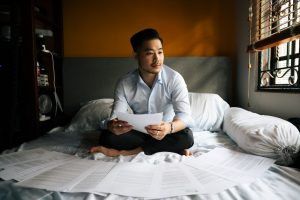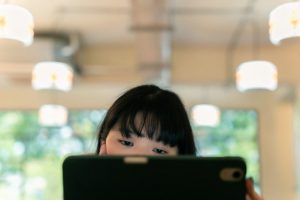Every volunteer remembers the moment when they realised their idealism wouldn’t change the world.
Perhaps this reality check happens the first time you participate in Flag Day and have people ignore your earnest pleas for donations. Perhaps the hard truth sinks in when you realise you would rather sleep in on a Saturday morning than visit some charity for a couple of hours.
Slowly, you accept that volunteering demands a level of selflessness at odds with your Singaporean pragmatism.
Your heart is big enough but your sense of security is not, so you give up.
He suggests that this is because Singaporeans are deeply insecure.
“Living in a small island quite naturally leads to fears of our existence as a country. Our vulnerability means we constantly struggle to survive, to be better and to secure our own place. Perhaps in the process, we lose self-confidence and even optimism,” the 63-year-old retiree explains.
He elaborates by adding that selflessness entails having a strong sense of self. I am reminded of the common adage—to love someone, you have to first love yourself.
He goes on, “To volunteer, you have to be confident. But if you’re constantly worried about your own ‘portion’ and believe you don’t have enough for yourself, how can you give to others?”
Perhaps this is also typical kiasu Singaporean behaviour. Evidently, as a prosperous nation, most of us do have enough. We just don’t think we do.
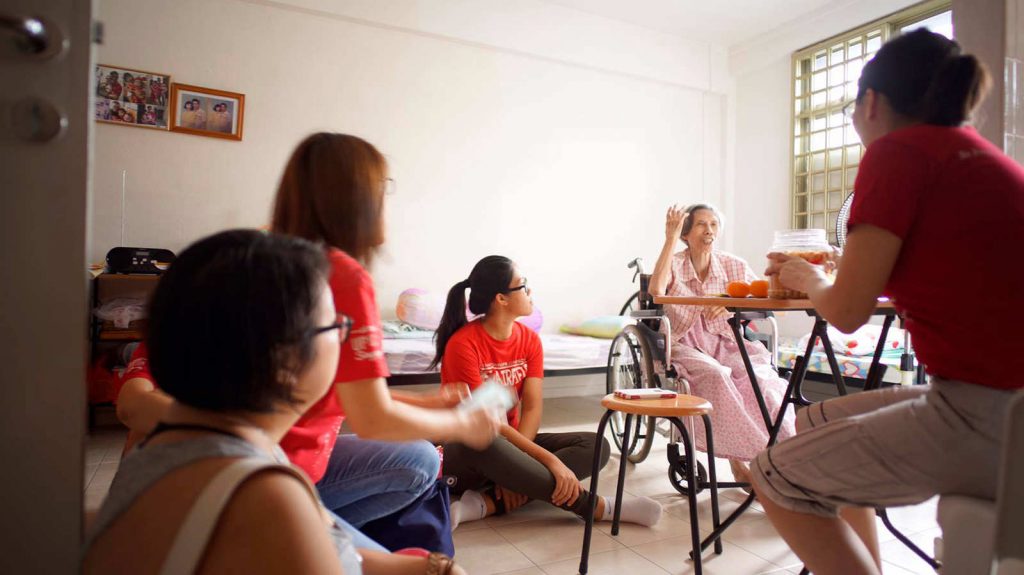
This insecurity is so pervasive that it doesn’t just show up in our lack of volunteerism. Sam also cites the social behaviour of “discourteous” drivers not giving way to others who signal to change lanes, and in fact even speed up to close the gap.
“Therein lies a sense of entitlement as well. I’m afraid if I [let you pass], then I lose out. But if one person gives way, others who see them doing it will follow suit, and it will become a general behaviour. People can’t seem to get that it’s for a collective good. It costs you nothing,” he says.
While I empathise with his frustrations, I’m also aware that eradicating, or simply adjusting, our deep-rooted insecurity will call for a central shift in policies and the way the government works.
Sam observes that Singaporeans have been “pampered by a government that’s pro-active in addressing social issues, resulting in a loss of self-reliance”.
Essentially, he raises a good point: if we lack the confidence to take care of ourselves without turning to the government, we’d be less inclined to offer our help to others in the community.
Short-term displays of goodwill rarely translate to sustainable volunteerism.
Interestingly, a survey by the National Volunteer and Philanthropy Centre (NVPC) shows that volunteerism in Singapore doubled between 2014 to 2016, a possible result of “informal volunteerism”. The centre provides the example of people distributing umbrellas and water to those queuing to pay their respects to late founding father Lee Kuan Yew.
Yet these short-term displays of goodwill rarely translate to sustainable volunteerism. At its core, volunteerism is about making space for another person or community’s needs in your own life. Giving demands a consistent effort.
As much as we understand the benefits of helping one another, it feels as though our policies already ingrain a heightened survival instinct when it comes to living in Singapore. For example, our emphasis on meritocracy assumes hard work and talent are all that matter, and constantly pits us against each other to emerge the best.
When we ‘lose’, we naturally want to protect whatever we still have. And when others have less, we think they deserve it because they didn’t work hard enough, and therefore couldn’t reap the rewards of our meritocracy.
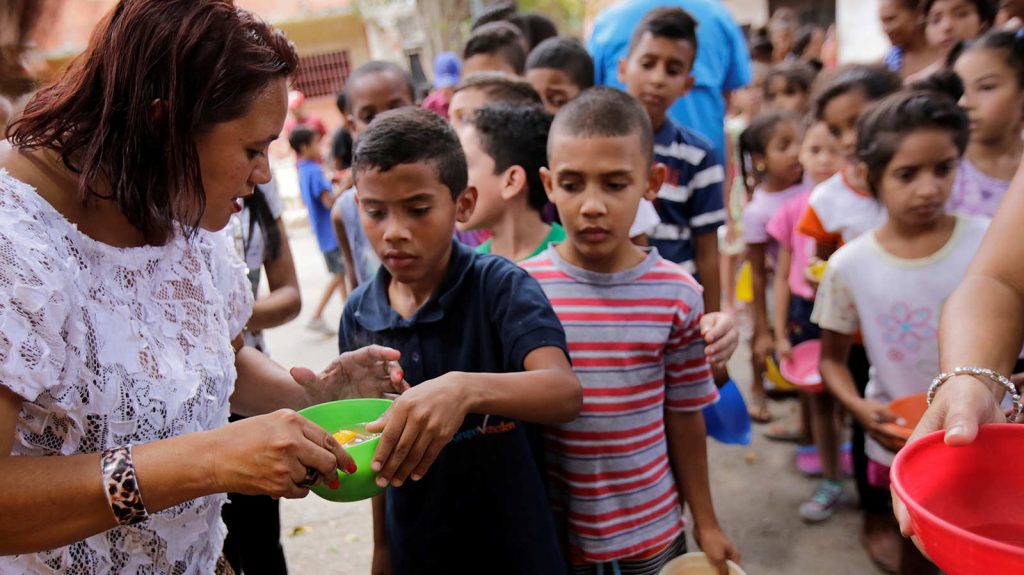
It also doesn’t help that school teaches us to think of volunteerism as overseas community involvement programmes in less developed countries, such as Cambodia and Laos.
Otherwise, volunteering usually comprises playing a guitar in an old folk’s home or collecting used newspapers in a one-off session after school.
While these activities do serve the community, there rarely seems to be any deeper meaning behind them. Without follow-up, we are also unlikely to observe any long-term benefits, making it hard for us to truly develop a passion for giving back.
At the same time, perhaps these are simply my own excuses not to care.
After all, we all own our behaviour, so why should our reluctance to volunteer depend on what our policies tell us?
Nonetheless, without having the right basic mindset we need to talk about volunteerism, active citizenship is unlikely to take root.
This is something communications consultant Gan Su-Lin also discusses in her recent commentary. She states that Singaporeans know the need for an “inclusive, caring society”, but at the same time “refuse to contribute to a [social] programme’s cost”.
Over time, it becomes obvious that our problem is far more entrenched. Flimsy beliefs are not enough to shape sustained commitment to action.
Su-Lin questions: “How can we catalyse change if we are not even aware of the lenses we wear when interpreting and judging the world around us?”
We still don’t fundamentally understand that giving to others doesn’t mean having less for oneself.
But let’s be real for a second. For a start, touting the benefits that volunteering can have for the volunteer might be precisely what it takes to expand the culture of volunteerism. People might criticise CSR initiatives for being insincere, but does anyone question the good that can come out of them?
Sam adds, “We remind our seniors to be grateful that they’re in a position to volunteer. This sense of gratitude and fulfillment can actually make them feel healthier. Some people tell me that volunteerism should be selfless, but those are Mother Teresa standards. People still want to know they can benefit from it.”
Similarly, CEO of NVPC Melissa Kwee says that the effort becomes more meaningful when we learn to view volunteerism as a “two-way street”. Most people gain “a real sense of self-esteem from being a positive contribution to others”.
However, these tactics only address the symptom (i.e., a lack of volunteerism). They barely touch on the underlying cause: an ‘every man for himself’ mentality that helped Singapore succeed in the past. In striving for a better country, we were fuelled by the fear of not having enough.
Unfortunately, changing this mentality requires us to question and even dismantle whatever works so far, even if we worry that this will do more harm than good.
In essence, building a culture of volunteerism tests our faith in the system we have been taught there’s no need to examine. For all its emphasis on harmony and equality, this system has somehow created a selfish and individualistic culture.
We might be a sophisticated nation, but we still don’t fundamentally understand that giving to others doesn’t mean having less for oneself.
Still, the pursuit of a greater good always involves diving into discomfort and uncertainty.
And, ironically, whether we sink or swim depends largely on our confidence.

